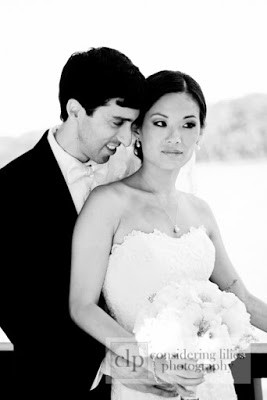Your Basic Guide to Life Insurance

While planning your wedding you should consider purchasing a life insurance policy as you start your new life together.
If you’ve ever found yourself wondering if a life insurance
policy is worth it, you’re certainly not alone. Put it this way: When your car
is insured, you’re at ease because the insurance company will cover for the
costs of damages should you run into an accident. Life insurance works the same
way.Insurancepolicies give individuals financial protection against risks of
losses from damage to property and liabilities from damages.
policy is worth it, you’re certainly not alone. Put it this way: When your car
is insured, you’re at ease because the insurance company will cover for the
costs of damages should you run into an accident. Life insurance works the same
way.Insurancepolicies give individuals financial protection against risks of
losses from damage to property and liabilities from damages.
Believe it or not, many people In the Philippines are still
reluctant about investing in life insurance. But, with atrusted
insurance company by your side, there is really more to gain when
you take out a policy.
reluctant about investing in life insurance. But, with atrusted
insurance company by your side, there is really more to gain when
you take out a policy.
Life Insurance
An Insurance Policy is a contract between an insurance
company and the policyholder, in which the latter consents to pay a set amount
of money at specific times. In turn, the insurance company pays out a financial
benefit to the policyholder should an event that’s covered by the insurance
policy occur. These events may include retirement, critical illnesses, serious
injury, and death. The policyholder will also have beneficiaries, to whom the
financial benefit may be granted . Beneficiaries are usually immediate family
members.
company and the policyholder, in which the latter consents to pay a set amount
of money at specific times. In turn, the insurance company pays out a financial
benefit to the policyholder should an event that’s covered by the insurance
policy occur. These events may include retirement, critical illnesses, serious
injury, and death. The policyholder will also have beneficiaries, to whom the
financial benefit may be granted . Beneficiaries are usually immediate family
members.
Types of Life Insurance
1. Term Life Insurance
Termlife insurancegives you coverage for an agreed term or a
specific number of years, usually 20-30. If you pass away during the
effectivity of the policy, a death benefit will be paid to your beneficiaries.
specific number of years, usually 20-30. If you pass away during the
effectivity of the policy, a death benefit will be paid to your beneficiaries.
Compared to other types of insurance, term life insurance
has the lowest upfront costs. You can get pure life coverage without the additional
costs for other aspects involving investments. However, as you get older, the
premium becomes higher, because your risk for illness and mortality also
increases.
has the lowest upfront costs. You can get pure life coverage without the additional
costs for other aspects involving investments. However, as you get older, the
premium becomes higher, because your risk for illness and mortality also
increases.
2. Whole Life Insurance
With a whole life insurance, a portion of the premium can be
build up as a capital. It also pays for the face value or death benefit if you
pass on during the period of effectivity of the policy.As the name suggests,
whole life insurance lasts for the policyholder’s entire life.
build up as a capital. It also pays for the face value or death benefit if you
pass on during the period of effectivity of the policy.As the name suggests,
whole life insurance lasts for the policyholder’s entire life.
Premiums are fixed in this policy, and there’s even a cash
value that you may be allowed to withdraw, loan against, or pass on to your
heirs. However, the fund invested only matures when you reach a certain age.
The premium amount is also more expensive that of term life insurance.
value that you may be allowed to withdraw, loan against, or pass on to your
heirs. However, the fund invested only matures when you reach a certain age.
The premium amount is also more expensive that of term life insurance.
3. Endowment Insurance
This policy has features of both term life insurance and
whole life insurance. Its effectiveness is temporary, typically 10-20 years,
and the time period is the set time for the fund’s maturity. You can also build
up capital from the premiums you pay.
whole life insurance. Its effectiveness is temporary, typically 10-20 years,
and the time period is the set time for the fund’s maturity. You can also build
up capital from the premiums you pay.
After the maturity of term, endowment insurance can still
keep on building up capital. It also pays a death benefit during effectivity,
and you may withdraw the policy’s face value after a certain number of years.
However, the short-term maturity means higher monthly or yearly premium
payments.
keep on building up capital. It also pays a death benefit during effectivity,
and you may withdraw the policy’s face value after a certain number of years.
However, the short-term maturity means higher monthly or yearly premium
payments.
How Do I Know Which Type To Invest In?
Be clear on your goals and priorities beforechoosing a life insurance policy. Understand
what you currently have in your life and then compare each types of life
insurance to know which one best suits you.
what you currently have in your life and then compare each types of life
insurance to know which one best suits you.
It would also be helpful to make a list of every investment
product you own. This includes all your bank accounts, investments (stocks,
businesses), existing insurance policies, and real estate properties. Likewise,
you should keep track of all your financial obligations like bank, SSS, and
Pag-IBIG loans, as well as credit card debts, and more.
product you own. This includes all your bank accounts, investments (stocks,
businesses), existing insurance policies, and real estate properties. Likewise,
you should keep track of all your financial obligations like bank, SSS, and
Pag-IBIG loans, as well as credit card debts, and more.
Analyze how much money you’re receiving from all your income
sources, and how much money you spend on bills and other expenses. This will
help you determine how much money you can allot for other investments.
sources, and how much money you spend on bills and other expenses. This will
help you determine how much money you can allot for other investments.
Identify your short-term, medium-term, and long-term financial goals,
and from there, choose a policy that can provide the ideal coverage for you.
For beginners, you can find this out by multiplying the amount of your annual
expenses by 10.
and from there, choose a policy that can provide the ideal coverage for you.
For beginners, you can find this out by multiplying the amount of your annual
expenses by 10.
Once you’ve accomplished all of these, you’d be ready to
sign your first life insurance policy. Be sure to only approach reputable and
trustworthy insurance companies.
sign your first life insurance policy. Be sure to only approach reputable and
trustworthy insurance companies.
Photo Credit: Considering Lilies Photography
Visit our website at www.yourethebride.com and “LIKE” our Facebook page at www.facebook.com/yourethebride or follow us
on Instagram at www.instagram/com/yourethebride

